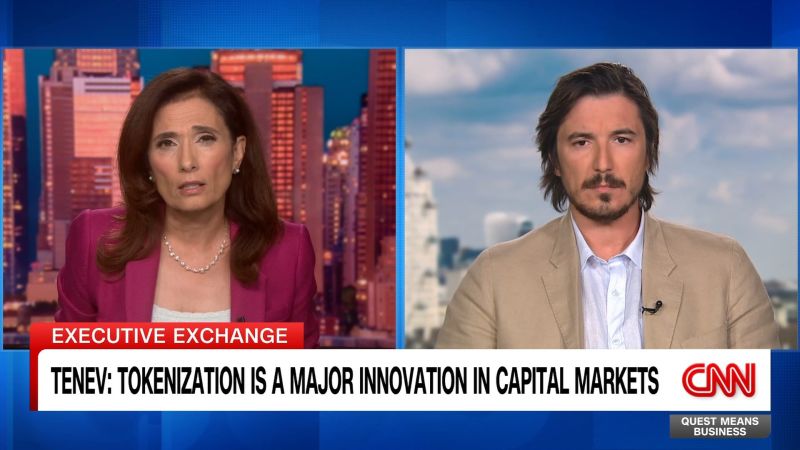Robinhood’s CEO, Vlad Tenev, has highlighted the transformative potential of tokenization in capital markets. During a recent discussion, Tenev emphasized how sectors such as art and real estate could leverage blockchain technology to enhance accessibility and liquidity. This innovation could fundamentally change how assets are traded and owned, opening new avenues for investment.
Tokenization refers to the process of converting ownership rights of a tangible or intangible asset into a digital token on a blockchain. Tenev believes this method can democratize access to high-value assets, making them more affordable and easier to trade. By fragmenting ownership into smaller units, individuals can invest in art pieces or property without needing substantial capital.
The implications of such technology could be significant. Tenev noted that traditionally illiquid assets, like art, could become more fluid. This shift would enable a broader range of investors to participate in markets that were previously limited to the wealthy. For instance, a valuable painting could be tokenized into hundreds of shares, allowing multiple investors to own a stake in it.
The conversation around blockchain and tokenization is gaining momentum in financial circles. According to a recent report by Goldman Sachs, the tokenization of assets could be worth over $16 trillion by 2030, indicating substantial growth potential. Financial institutions are increasingly exploring how to integrate these technologies into their operations.
As industries grapple with the future of finance, Robinhood aims to position itself at the forefront of this evolution. Tenev’s vision aligns with a broader trend towards digitization and decentralization in finance. He argues that tokenization not only enhances liquidity but also increases transparency, as blockchain technology offers a secure and immutable record of ownership.
Adoption of tokenization may also lead to regulatory changes. Policymakers are beginning to recognize the need for frameworks that can accommodate these new financial instruments. The U.S. Securities and Exchange Commission has already started discussions on how to regulate digital assets, which could shape the future of tokenization in the United States and beyond.
Tenev’s insights reflect a growing recognition of the potential of digital assets within capital markets. By advocating for tokenization, he is encouraging a shift towards a more inclusive financial system. This approach could empower individual investors and create new opportunities for wealth generation.
As the conversation around tokenization continues to evolve, stakeholders must navigate the challenges and opportunities it presents. Robinhood’s commitment to innovation could play a pivotal role in shaping the future landscape of finance, offering investors more choices and greater access to diverse asset classes.
In conclusion, the tokenization of assets stands to reshape capital markets significantly. With leaders like Vlad Tenev championing its potential, the financial industry may be on the brink of a transformative era that could redefine investment and ownership in the years to come.







































































